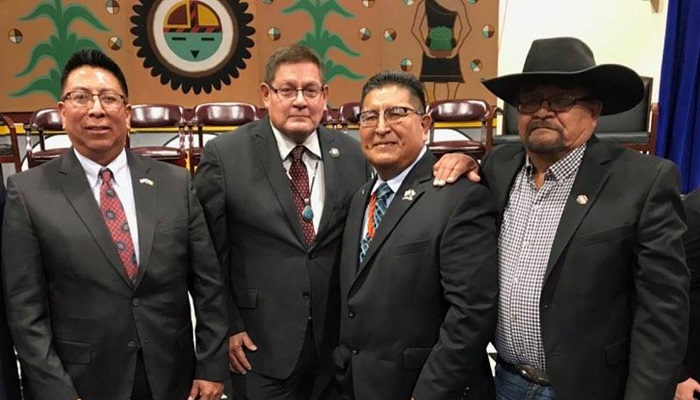After years of internal debates and absent a casino, the Hopi Tribe on Tuesday, May 8, 2018, officially (pdf) became a part of the Indian gaming industry.
Located in northeastern Arizona, the Hopi Tribe’s reservation encompasses upwards of 1.5 million acres, occupying part of Coconino and Navajo counties and is comprised of a dozen villages situated on three mesas, according to the Hopi tribe’s official website.
In 2016, the Hopi Tribe approved entering into a compact with the State of Arizona. The following year at November’s end, tribal Chairman Herman G. Honanie and Governor Doug Ducey signed the Hopi Tribe-State of Arizona Tribal Gaming Compact, giving the Tribe the opportunity to either operate or lease as many as 900 Class III gaming machines. The historical signing made the Hopi the 22nd and last Arizona tribe to enter into a compact with the state.
Prior to the signing, the Hopi Tribe was reportedly the only tribe in the state that wasn’t able to take part in or generate any revenue derived from tribal gaming.
Indianz.com reports that the planned closure of the Navajo Generating Station, a 2250 megawatt net coal-fired power plant situated on the Navajo Nation in Page AZ, slated for next year, served as the catalyst for then-Chairmann Honanie’s decision to sign the agreement.
The Hopi and Navajo reservations in the northeastern part of the state are reportedly coal-rich and both tribes rely heavily on the revenues from the coal to help fund their respective governments and provide needed services to members of the tribe.
According to a May 9 report from the Associated Press news service published by the Navajo-Hopi Observer, the tribes have asked federal officials to help keep the plant from closing and in doing so save hundreds of jobs for tribal members. In a press release, current Hopi Chairman Tim Nuvanyaoma (pictured, far left) reportedly said that 85% of the Tribe’s annual general fund is derived from coal revenues.
Last month in written testimony to Congress, Chairman Nuvanyaoma said, “The Hopi Tribe is landlocked and economic diversification on the reservation is incredibly difficult.” Adding that, “We lack clean water, reliable electricity, and access to reliable and fast internet. These are unthinkable conditions in a country this prosperous – but it is our reality,” as reported by Indianz.com.
The Hopi Tribe, under the leadership of Chairman Nuvangyaoma, has continued on the gaming path paved by his predecessor. Under the compact signed on November 30, 2017, which will run for a minimum of 20 years, the Hopi Tribe is entitled to own and operate up to 900 gaming machines on its tribal land, or lease the machines to other tribes in Arizona.
According to last year’s press release (pdf), there are currently 16 Arizona tribes that operate casinos, with five of them benefiting from gaming via lease agreements.
On May 1, 2018, the Hopi Tribe along with coal mining groups reportedly filed a lawsuit in U.S. District Court suing the operator of an Arizona aqueduct system in an attempt to maintain operations at the Navajo Generating Station beyond 2019.



